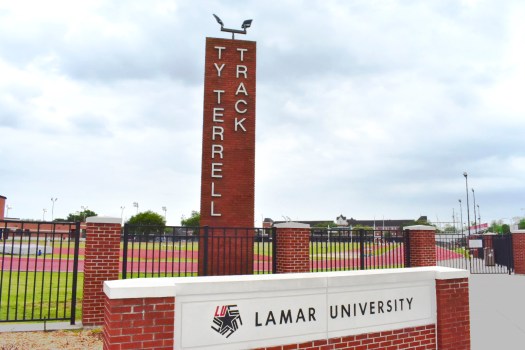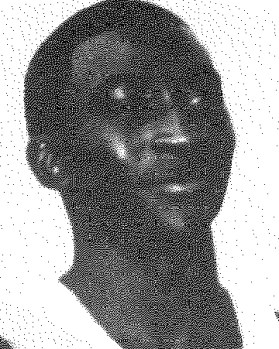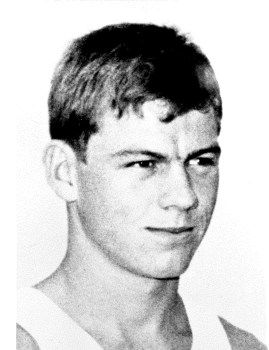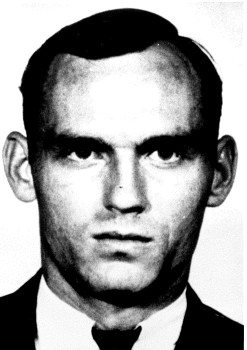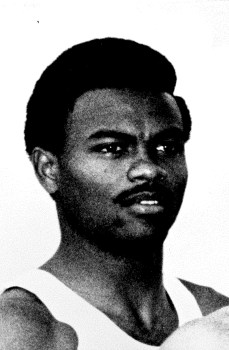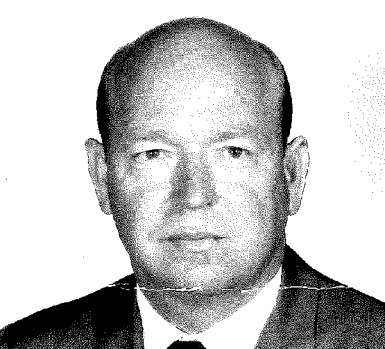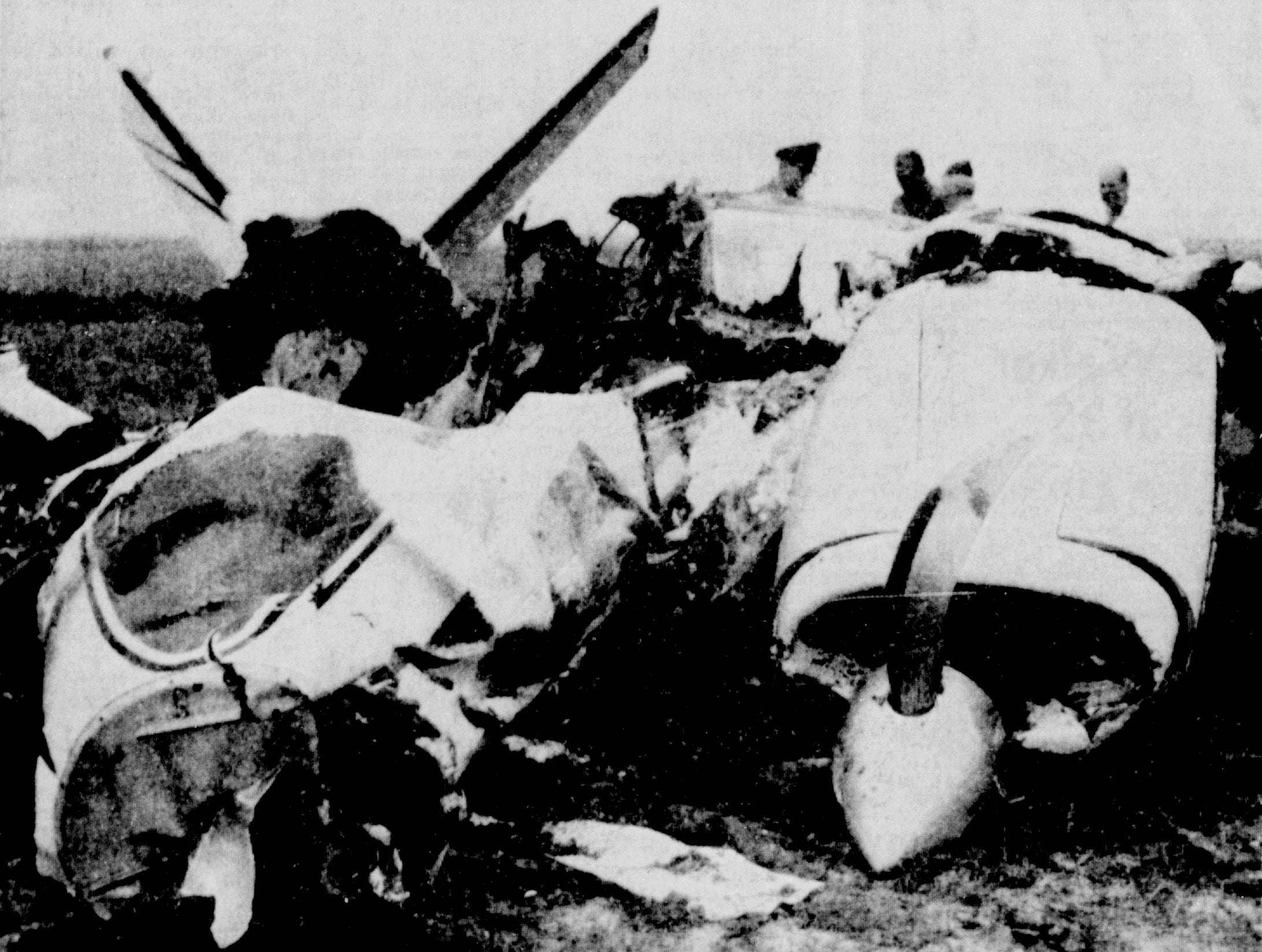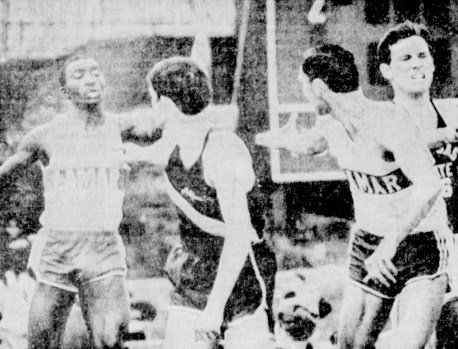Cardinal wings in heaven: Plane crash in Beaumont 50 years ago killed Lamar mile-relay team, their coach, pilot
Published 12:23 am Saturday, April 28, 2018
Editor’s note: Today marks the 50th anniversary of the plane wreck at Beaumont Municipal Airport that claimed five members of the Lamar State College of Technology (now Lamar University) mile relay team, head coach and former Thomas Jefferson High School coach Ty Terrell and pilot E. Winston McCall. This story was originally posted online April 21 and printed in the April 22 issue of The News.
Trey Clark sent his Lamar University track and field athletes to four different meets this weekend in preparation for the Southland Conference Outdoor Championships.
Three meets were held in California — the Mt. San Antonio College, or Mt. SAC, Relays in Walnut; the Bryan Clay Invitational in Azusa and the Long Beach Invitational. The other is the J. Fred Duckett Twilight Invitational at Houston’s Rice University.
To Clark, who has led Lamar’s track program since August 1999, the idea is much like what Tyrus “Ty” Terrell had in mind when he took his Southland-champion Lamar State College of Technology mile relay, or 4×400-meter, team to competitions like a meet in Xalapa, Mexico, to compete against an all-star Mexican team in April 1968. (The Summer Olympics were held later that year in Mexico City.)
“Just as Coach Terrell took those men and others to the Border Olympics, Texas Relays and Drake Relays, our goal, as a staff, is to put our student-athletes in the right competition at the right time of the season, in order to give them the best opportunities to be successful,” Clark said via email.
CARDINALS FLY ON THE TRACK
John Richardson, 20, of Port Neches; Waverly Thomas, 20, of Galveston; Randy Clewis, 19, of Palestine; Don DeLaune, 20, of La Marque and Mike Favazza, 20, of Houston comprised Lamar Tech’s highly touted mile relay team. Thomas was the team captain, according to Lamar’s student newspaper at the time.
Their coach, Terrell, 46, had led the track program at the Beaumont school for 13 years after spending time at Port Arthur’s Thomas Jefferson High School, where his teams won three district championships in his final four years there.
Richardson lettered three years in track and basketball at Port Neches-Groves High. He won the district 880-yard, or 800-meter, dash and recorded a season-best 1:59.2 as a senior in 1965. As a basketball player that season, he averaged 16.5 points per game.
The five men hoped to defend Lamar’s conference title in the mile relay and were gaining national attention in 1968. DeLaune substituted for an injured Favazza at the Border Olympics in Laredo and helped the Cardinals, who were coming into their own as a mid-major power in athletics, upset the University of Texas and Rice with a then-national best 3:07.5.
“I know the hopes [Terrell] held for his mile relay team,” then-PNG track coach Emile O’Brien told The Port Arthur News. O’Brien worked with Terrell at Jefferson.
“When three sophomores and a junior turn in a 3:07, a coach starts thinking ahead to the day when they try for a world record,” O’Brien added.
The Lamar unit then traveled to Des Moines, Iowa, to compete in the Drake Relays at Drake University. Their teammate, Johnny Fuller, finished third in the decathlon that was held at Iowa State in Ames on Thursday, April 25. He flew round-trip via commercial airline, leaving Tuesday and returning Thursday evening.
The mile relay final was held that Saturday at Drake. The University of Iowa set the meet record the previous year at 3:07.4. Lamar, with DeLaune, Favazza, Thomas and Clewis running (according to meet records), broke the mark by 0.1 second.
So did Texas, but by more. The Longhorn quartet of Stan McDaniel, David Matina, Eddie Canada and Dave Morton ran 3:05.5. Lamar finished second, but its time was ranked third nationally.
Thomas, Favazza, Clewis and Richardson made up Lamar’s sprint medley relay team that finished fourth in the meet in 3:21.5. Such an event consists of two 200-meter legs, a 400-meter dash and 800-meter run.
Kansas State won the race, with Michigan State coming in second and Notre Dame taking third.
“Lamar had a great day,” said Al Caldwell, a KLVI-AM 560 morning personality who was program director at Beaumont Top-40 radio station KAYC at the time. “Those Drake Relays, they had a lot of great athletes.”
FIVE ATHLETES, A COACH AND A PILOT
Not all of Lamar’s track athletes went to Drake.
Two athletes, Henry Harrison and Doug Boone, “decided to pass up the meet,” The News reported in a sports article. A news article in the same April 29 issue mentioned that the two athletes did not go due to ineligibility.
The mile relay team and Terrell traveled via charter plane piloted by Eleric Winston McCall, 46, a Marine Corps fighter pilot in World War II.
“Using charter was standard for mid-majors,” said Joe Lee Smith, who was Lamar’s sports information director in 1968. “That’s what we were. I went to work at Lamar in 1963, and we had chartered with Winston about five times.”
McCall, of Beaumont, was considered an excellent pilot who worked with the Civil Air Patrol in flight training, CAP Beaumont squadron commander Maj. Charles Etheridge told The News.
Charter flights were seen as cost-effective for a school that hadn’t yet attained university status but competed in the “university division” at Drake. “University division” was a common term for programs competing in what is now known as NCAA Division I.
During football season, Lamar used two planes for football away games, one for the offense and another for the defense, Smith said. He did not travel to Drake.
“I had gone to the beach,” he said. “That was an off-week for me. I would go sometimes on bus. The budget was tight.”
The twin-engine Beechcraft Queenair private plane was set to land at Beaumont Municipal Airport in the wee hours of Sunday, April 28. McCall operated the airport and saw major improvements there between 1961-66.
The plane departed from Des Moines at 7:02 p.m. Saturday, but visibility was poor during a rainy night.
“Apparently, the pilot of the plane, close to final approach, had a heart attack and died,” Caldwell said. “Ty Terrell was riding co-pilot. He had flown before and was vaguely familiar. He tried to land the plane, but it hit the left side. It bounced after it hit and exploded the fuel tank.”
The plane plowed into a rice field about a mile from the airport. The crash was logged by the Jefferson County Sheriff’s Department and Department of Public Safety at 12:24 a.m. Sunday.
All seven on board, the five Lamar runners, Terrell and McCall, were killed “apparently instantaneously.”
The bodies of Terrell and McCall “were found jammed under the dashboard of the twin-engined aircraft, where the bodies had more protection from the flames than the other five,” The News reported.
“The other bodies were ‘burned terribly,’” Jefferson County Justice of the Peace Wallace McCasland told The News. Caldwell said one or two of the runners had tried to climb onto one of the wings of the plane.
THE AFTERMATH
A memorial service for the perished team members was held at 1:30 p.m. the next day at Lamar’s McDonald Gym. Among the pallbearers were athletic director J.B. Higgins, head men’s basketball coach Jack Martin and assistant coach Billy Tubbs, who went on to greater fame as Oklahoma’s head coach in the 1980s.
“It was a shock,” Caldwell said. “To the area, it was a huge shock, not because it happened to the people of Lamar, but the number of people [who were killed].”
The team received more than 1,000 telegrams from across the U.S., Mexico and South Africa expressing condolences, The Redbird newspaper reported.
A track meet organized by the Young Men’s Business League of Beaumont and Lamar was renamed the Tyrus Terrell Relays. The meet began in 1964 and was named the Gulf Federation Meet at first.
The half-mile race was renamed the John Richardson 880-yard dash. The 4×400-meter event was called the Lamar Tech Memorial Mile Relay.
“Many people have asked, ‘What can we do for the college in this hour of tragedy?’ Lamar President Richard W. Setzer told The Redbird. “We as simply: Attend this memorial track meet and do the one thing that coach Terrell most wanted throughout his life — enjoy track.”
As for the remainder of the season, the surviving Lamar athletes voted to participate in the Southland Conference meet.
Charter plane crashes involving athletes and musicians have occurred all too often. Citizens of Jefferson County were reminded of the Feb. 3, 1959, wreck that claimed Sabine Pass native and former Lamar student J.P. “Big Bopper” Richardson and fellow musicians Buddy Holly and Ritchie Valens along with pilot Roger Peterson in Clear Lake, Iowa.
On Oct. 2, 1970, one of two chartered planes carrying the Wichita State football team to a game at Utah State crashed into a mountain 8 miles west of Silver Plume, Colorado, killing 29 of 40 on board at the scene (two more died under medical care). The following Nov. 14, a jet carrying 37 Marshall University football players, their head coach, team doctors, the athletic director and 25 team boosters — clipped a stand of trees and crashed 2 miles from the Tri-State Airport in Kenova, West Virginia, on its way back from a 17-14 loss to East Carolina. All 75 on board died.
Other notable fatal plane crashes include the Feb. 15, 1961, accident claiming all 25 members of the U.S. figure skating team in Brussels; a Jan. 10, 1980, wreck in the Atlantic Ocean off Virginia killing LSU football coach Bo Rein and a pilot; a Jan. 27, 2001, crash in Strasburg, Colorado, killing 10 persons (including two players, two pilots, staff members and broadcasters) associated with the Oklahoma State men’s basketball team following a loss at Colorado; and a Nov. 28, 2016, accident in Colombia claiming 42 people (19 players) associated with the Chapecoense soccer team. (Twenty-nine others died.)
Smith, who retired from Lamar in 1993 after 33 years, said the school made no policy changes in relation to travel as a result of the 1968 wreck.
CARDINALS TODAY
Saturday, April 28, 2018, will mark the final day of the 109th Drake Relays. Clark said no event is planned to commemorate the 50th anniversary of the wreck, but he doesn’t want the tragedy to be forgotten.
“I want our athletes today to honor their memory by representing Lamar University and Southeast Texas just as those men did, with great character, dignity and athletic achievements,” Clark said. “Today, their portrait and Mile Relay Champions trophy from the Border Olympics is displayed in my office and reminds me of the type of quality student-athletes that we want in our program.”
Lamar’s home track today is called Ty Terrell Track. No home meets were scheduled this year.
Clark said the safety of his athletes is “of the utmost concern” in travel, and every precaution is made to make sure they are transported safely.
“I am also mindful about how we represent Lamar University and Southeast Texas each time we leave campus,” he said. “I hope, when my career is over, that my teams have lived up to the standards set by Coach Terrell and his team.”
•
I.C. Murrell: 721-2435. Twitter: @ICMurrellPANews


